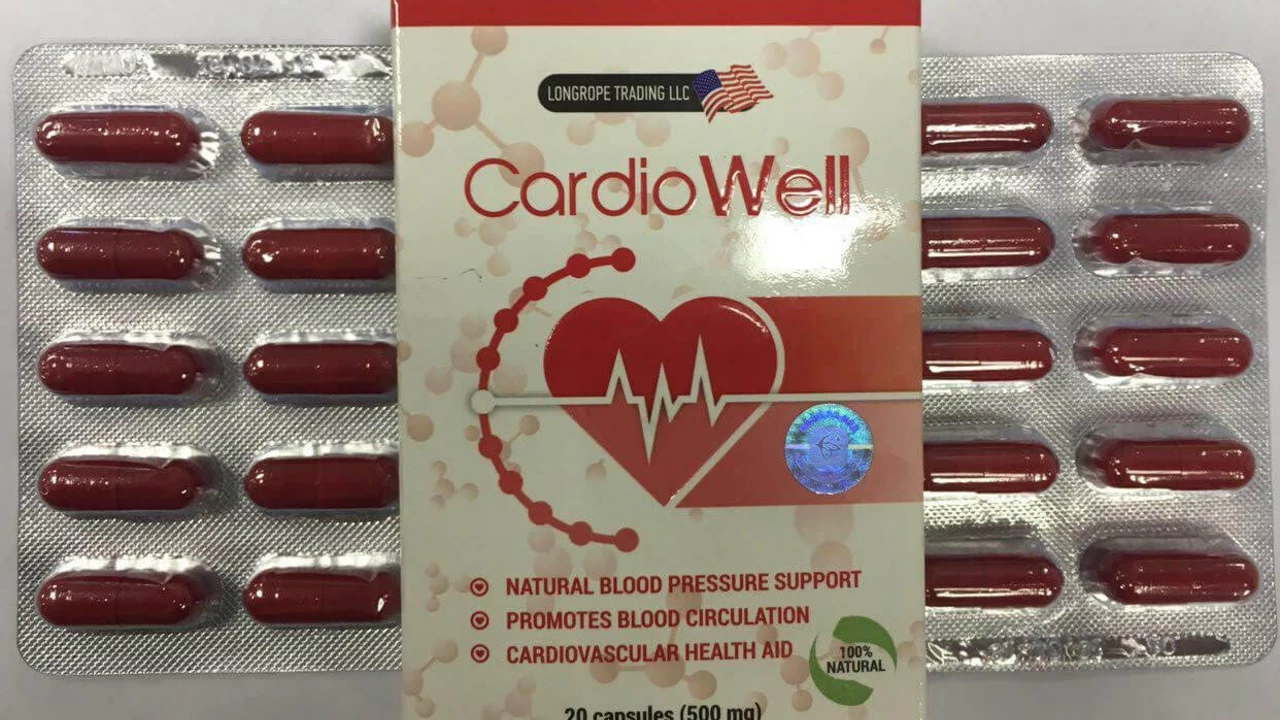June 2023 Health Archive — fast takeaways on heart, diabetes, gut and lungs
Want the key points from June 2023 without wading through every post? Here’s a clear, practical roundup of what we covered so you can act on the stuff that matters.
Heart and circulation: chlorthalidone and sildenafil
One post looked at chlorthalidone, a diuretic many doctors use to bring down blood pressure. The main takeaway: by reducing blood volume and easing strain on the heart, chlorthalidone can lower the chance of stroke and heart attack for people with hypertension — but any decision should be made with a prescriber who can weigh side effects and kidney function.
Another piece examined sildenafil, known as Viagra, and its effects on circulation. Sildenafil widens blood vessels and can drop blood pressure briefly, which helps blood flow. That same action makes it useful in certain heart and lung conditions, but it can clash with nitrates and some heart meds. If you or someone you care for has heart disease, ask a clinician before trying it for circulation problems.
Diabetes, gut health, cancer risks and genetics
Saxagliptin showed up in June’s coverage as a diabetes drug that boosts the body’s own insulin response. People with type 2 diabetes may see better blood sugar control and improved insulin sensitivity on DPP-4 inhibitors like saxagliptin, though treatment plans should be tailored — no single pill fits everyone.
For stomach bugs, our gastroenteritis post focused on prevention people can do right away: wash hands thoroughly, keep raw and cooked foods separate, refrigerate leftovers promptly, stay hydrated, and consider probiotics if you’re prone to digestive upset. Vaccination against rotavirus was noted as a clear prevention step for infants and young kids.
We also covered pancreatic cancer and ethnicity, pointing out real differences in risk. Certain groups, including African Americans, show higher incidence rates. That pattern likely comes from a mix of genetics, access to care, diet, smoking rates, and other factors. Awareness and early screening when symptoms appear are practical steps to push for better outcomes.
Finally, a post on genetics in obstructive pulmonary disease explained how genes influence conditions like asthma and emphysema. Genetic testing won’t give all the answers, but it can clarify risk and sometimes point to treatments that work better for certain people — especially when family history suggests a hereditary pattern.
If you want quick links to any of these full posts or practical checklists (for blood pressure checkups, diabetes monitoring or gut-care routines), tell me which topic and I’ll pull the relevant guide for you.

Can Chlorthalidone Help Prevent Cardiovascular Disease?
In my recent research, I've come across some intriguing information implying that Chlorthalidone, a medication typically used to control high blood pressure, could be beneficial in preventing cardiovascular disease. This drug works by helping your body get rid of excess salt and water, which reduces blood pressure and alleviates strain on the heart. Consequently, it may lower the risk of strokes and heart attacks. While it's important to note that all medication comes with potential side effects, this discovery could be a game changer for those at risk of heart disease. As always, speaking with your doctor before starting any new medication is crucial.
Read more
The impact of sildenafil on cardiovascular health and circulation
As a blogger, I've recently delved into the impact of sildenafil on cardiovascular health and circulation. Interestingly, I discovered that sildenafil, the primary ingredient in Viagra, was initially developed to treat heart-related issues. It turns out that its vasodilatory effects can improve circulation and lower blood pressure. However, it's important to note that sildenafil may not be suitable for individuals with certain heart conditions, as it can interact negatively with some medications. Overall, sildenafil has shown promising results in treating certain cardiovascular issues, but one should always consult a healthcare professional before using it for such purposes.
Read more
How Saxagliptin Affects Insulin Resistance in Type 2 Diabetes
As a blogger, I've recently been researching the effects of Saxagliptin on insulin resistance in individuals with Type 2 Diabetes. Saxagliptin is an oral medication that works by increasing insulin production and decreasing glucose production in the liver. This helps to regulate blood sugar levels more effectively. I've discovered that Saxagliptin has been shown to improve insulin sensitivity and reduce the risk of long-term complications associated with Type 2 Diabetes. In conclusion, incorporating Saxagliptin into a diabetes treatment plan can be beneficial for those struggling with insulin resistance.
Read more
How to Prevent Gastroenteritis: Tips for Maintaining a Healthy Gut
Gastroenteritis can be a real pain, but luckily there are some simple steps we can take to keep our gut healthy and happy. First, washing our hands frequently and practicing good hygiene can dramatically reduce the risk of infection. Second, proper food handling and storage can help keep harmful bacteria at bay. Third, staying hydrated and eating a balanced diet that includes probiotics can improve gut health. Lastly, getting vaccinated against viruses like rotavirus can also decrease the chances of gastroenteritis. So let's take these precautions and maintain a healthy gut!
Read more
Pancreatic Cancer and Ethnicity: Understanding the Differences in Risk
As a blogger, I am compelled to shed light on the topic of pancreatic cancer and its varying risk factors, particularly in relation to ethnicity. It is essential to understand that different ethnic groups experience diverse levels of risk when it comes to this devastating disease. Research has shown that African Americans, for instance, have a higher incidence of pancreatic cancer compared to other ethnic groups. Additionally, genetic predispositions, environmental factors, and lifestyle choices play a significant role in determining one's risk for developing this form of cancer. By understanding these differences, we can work towards better prevention, early detection, and treatment methods tailored to individual needs.
Read more
The Role of Genetics in Obstructive Pulmonary Disease
As a blogger, I recently delved into the fascinating world of genetics and its role in obstructive pulmonary disease. It's remarkable how our genes can influence our susceptibility to conditions like asthma, chronic bronchitis, and emphysema. Research has shown that genetic factors can impact lung function and inflammation, leading to an increased risk for these diseases. With advancements in genetic testing, we can better understand our individual risks and work towards personalized prevention and treatment strategies. Overall, genetics plays a crucial role in obstructive pulmonary diseases, and it's essential for us to continue exploring this connection to improve our overall respiratory health.
Read more